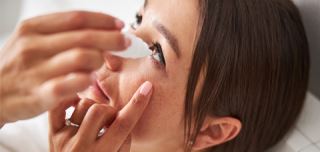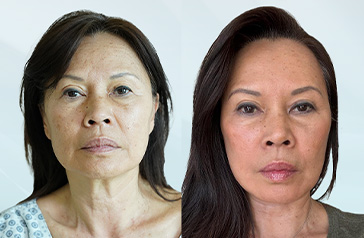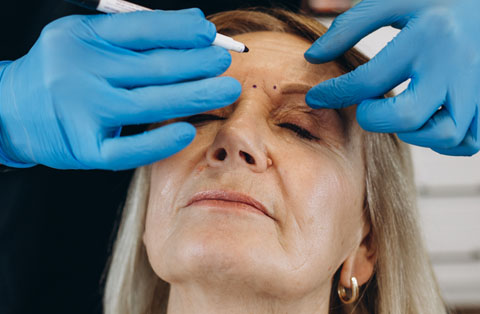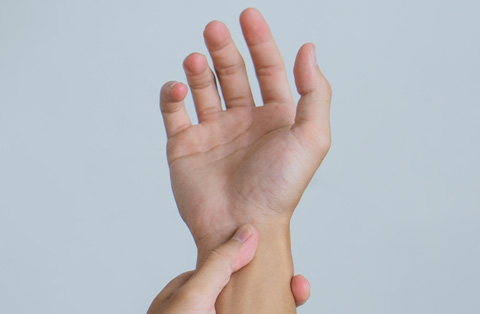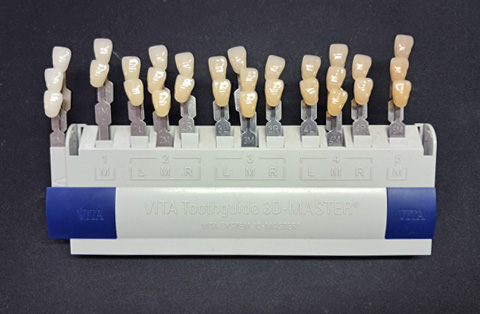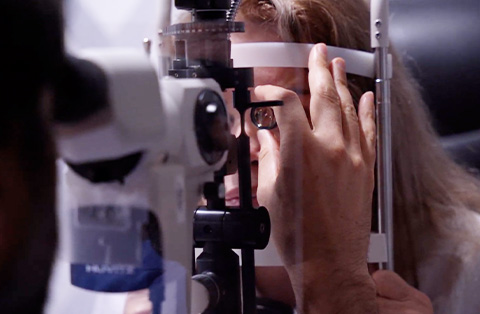Struggling with dry eyes? Discover simple self-care and home remedies that relieve irritation, improve comfort, and protect your vision in daily life.
Dry eye syndrome occurs when your eyes don’t make enough tears or when tears evaporate too quickly, leaving them irritated and uncomfortable.
This is one of the most common eye complaints, affecting millions worldwide. Long hours on screens, air conditioning, and aging all increase the risk. Without proper care, symptoms can interfere with daily life and reduce quality of vision.
In this article, we’ll explain the most effective self-care strategies and home remedies for dry eyes. You’ll learn how lifestyle habits, over-the-counter options, and simple adjustments can bring lasting relief.
What Is Dry Eye Syndrome?
When the eyes don’t produce enough tears or when moisture evaporates too quickly, the surface becomes irritated and uncomfortable. This condition, called dry eye syndrome, often causes burning, stinging, or blurred vision.
Most cases are mild to moderate and can be managed outside of a clinic. Simple self-care habits and home remedies help many people relieve symptoms and protect eye health.
How Does Self-Care Help About Dry Eyes?
Self-care reduces irritation, supports tear stability, and protects the eye surface. Regular habits like blinking more often, staying hydrated, and using simple remedies at home can make eyes feel more comfortable.
Managing daily triggers is just as important as symptom relief. By limiting screen strain, improving indoor humidity, and protecting eyes outdoors, many people prevent symptoms from worsening and reduce the need for medical treatment.
What Are the Most Common Symptoms of Dry Eyes?
People with dry eyes often describe burning, stinging, or a gritty feeling, as if sand were in the eye. Vision may blur at times, especially during reading or screen use. Some notice sensitivity to light or find that eyes water excessively as a reaction to dryness.
Burning
Stinging
Gritty sensation
Blurred vision
Light sensitivity
Excessive tearing
These symptoms can range from mild to disruptive. Recognizing them early is important because simple self-care and home remedies can often prevent discomfort from becoming worse.
How Can Self-Care Relieve Dry Eye Symptoms?
Self-care focuses on improving eye moisture and reducing irritation. Regular habits strengthen the tear film, protect the eye surface, and make symptoms less disruptive.
Simple changes such as blinking more often, adjusting indoor air with a humidifier, and protecting eyes with wraparound sunglasses help keep moisture from evaporating too quickly. Drinking enough water and eating foods rich in omega-3 fats, like oily fish, also support healthy tear production.
Can Using a Humidifier Alleviate Dry Eyes at Home?
Yes. A humidifier adds moisture to indoor air, which slows down tear evaporation and helps keep the eye surface hydrated. This is especially useful in dry climates or during winter heating when indoor air becomes very dry.
Placing a humidifier in rooms where you spend the most time, such as the bedroom or office, can make daily symptoms less noticeable.
How Do Wraparound Sunglasses Reduce Dryness Outdoors?
Wraparound sunglasses reduce dryness by blocking wind, dust, and sunlight that cause tears to evaporate quickly.
They work by creating a shield around the eyes. Unlike regular frames, their curved design covers the sides of the face, limiting airflow and preventing irritants from reaching the eye surface. This helps natural tears stay longer and keeps the eyes lubricated.
Outdoor conditions like wind, bright sunlight, or airborne particles often worsen dry eye symptoms. By reducing exposure to these triggers, wraparound sunglasses protect the eyes from irritation.
Many wraparound models also provide UV protection. Ultraviolet rays can damage the eye surface and make dryness worse. Choosing sunglasses with UV filters offers both comfort and long-term safety.
For anyone with dry eye syndrome, wearing wraparound sunglasses is a simple self-care step that makes outdoor activities more comfortable.
What Are the Best Home Remedies for Dry Eyes?
The best home remedies for dry eyes include warm compresses, using a humidifier, staying hydrated, eating oily fish, and protecting the eyes with wraparound sunglasses.
A warm compress helps loosen blocked oil glands along the eyelids. When these glands work better, the tears stay on the eye surface longer and reduce irritation. Using a clean cloth soaked in warm water for several minutes each day is a simple routine that supports tear quality.
Indoor air often becomes dry, especially in winter or air-conditioned spaces. A humidifier restores moisture to the air, slowing down tear evaporation and making the eyes more comfortable.
Staying hydrated also plays an important role. Drinking enough water each day helps the body, including the tear glands, produce the fluid needed to lubricate the eyes. A diet rich in omega-3 fatty acids, found in oily fish such as salmon and mackerel, further supports tear production and reduces inflammation.
Finally, wraparound sunglasses provide outdoor protection. By blocking wind, dust, and UV rays, they reduce the main triggers that make dry eye symptoms worse.
These remedies are safe, easy to use at home, and form the foundation of self-care for managing dry eyes.
5 Quick Tips for Home Care
Apply a warm compress daily.
Use a humidifier in dry rooms.
Drink enough water throughout the day.
Eat oily fish rich in omega-3.
Wear wraparound sunglasses outdoors.
How Does a Warm Compress Improve Tear Quality?
A warm compress improves tear quality by melting the blocked oils in the eyelid glands, allowing them to flow more easily into the tears. This oily layer is essential because it keeps the tear film stable and prevents rapid evaporation.
The eyelids contain meibomian glands that often become clogged in people with dry eye syndrome. When these glands cannot release enough oil, the tears lose their balance and dryness increases. Gentle heat softens the oils inside the glands, clears blockages, and restores a healthier tear composition.
With regular use, a warm compress not only improves lubrication but also reduces irritation and inflammation linked to gland dysfunction. This makes it one of the simplest and most effective self-care methods for managing dry eyes at home.
Which Home Remedies for Dry Eye Are Most Effective?
The most effective home remedies for dry eye are warm compresses, artificial tears, using a humidifier, staying hydrated, and eating foods rich in omega-3 fatty acids. These methods directly support tear quality and help maintain eye moisture.
A warm compress improves the function of the meibomian glands, which produce the oily layer of tears. By keeping this layer healthy, tears stay longer on the eye surface and protect against evaporation.
Artificial tears, available over the counter, provide quick relief by adding moisture and reducing irritation. They are especially useful for people who spend long hours on digital devices or in air-conditioned rooms.
A humidifier adds moisture to indoor air, preventing the eyes from drying out in environments with low humidity. Drinking enough water each day further supports natural tear production. In addition, omega-3 fatty acids from oily fish, flaxseeds, or walnuts reduce inflammation and strengthen the tear film.
Together, these remedies form the foundation of self-care. They are safe, easy to use at home, and can significantly reduce symptoms when practiced regularly.
Can Staying Hydrated Help Prevent Dry Eye Symptoms?
Yes. Staying hydrated helps prevent dry eye symptoms by supporting the natural production of tears. Without enough water, the body struggles to produce the fluid needed to keep the eyes lubricated.
Tears are made up mostly of water, along with oils and mucus. When you don’t drink enough, the tear film becomes unstable, and the eyes dry out more quickly. This can make irritation, burning, or blurred vision worse.
Good hydration also supports the glands that produce tear components. A steady fluid balance helps maintain both the watery and oily layers of the tear film. As a result, the eyes stay moist longer, and symptoms are less disruptive.
For people who often experience dryness, drinking water regularly throughout the day is a simple but effective self-care habit. It complements other remedies such as warm compresses, eye drops, and using a humidifier.
Is Eating Oily Fish Beneficial for Tear Production?
Yes. Eating oily fish is beneficial for tear production because it provides omega-3 fatty acids, which help reduce inflammation and improve the quality of tears. A healthy tear film needs not only water but also oils, and omega-3s support the glands that release these protective oils.
Research shows that people who regularly eat oily fish such as salmon, mackerel, sardines, and tuna often experience fewer dry eye symptoms. Omega-3 fatty acids help stabilize the tear film, making tears last longer on the eye surface and slowing down evaporation.
In addition to eye health, omega-3s support overall well-being, including cardiovascular and brain function. For people with dry eye syndrome, adding oily fish to the diet two to three times a week is a practical self-care strategy that complements other remedies like warm compresses and hydration.
What Over-the-Counter Remedies Can Help Dry Eyes?
The most helpful over-the-counter remedies for dry eyes are artificial tears, lubricating gels, and ointments. These products add moisture, protect the eye surface, and provide quick relief from irritation.
Artificial tears are the most common choice. They replace missing moisture, reduce burning and stinging, and can be used several times a day. Preservative-free versions are safer for frequent use, especially for people with sensitive eyes.
Lubricating gels and ointments last longer on the eye surface. They are thicker than drops, so they work well for people who wake up with dry eyes or have persistent symptoms at night. The main drawback is that they can blur vision for a short time after application, which is why many people prefer to use them before sleep.
Over-the-counter options do not cure dry eye syndrome but are an important part of self-care. They can be combined with lifestyle habits such as using a humidifier, eating oily fish, and wearing wraparound sunglasses to manage symptoms more effectively.
How Do Eye Drops Help Lubricate Your Eyes?
Eye drops help by adding moisture directly to the eye surface and keeping the tear film stable. This extra lubrication reduces burning, stinging, and the gritty feeling that many people notice with dry eyes.
Most artificial tears are designed to act like natural tears. They hydrate the eyes, balance their chemistry, and in some cases include oils that slow evaporation. Regular use makes blinking more comfortable and protects the eye surface from irritation.
When Are Gels or Ointments a Better Option for Dry Eyes?
Gels and ointments are better options when dry eye symptoms are persistent, especially at night. Their thicker texture stays on the eye longer than regular drops, providing lasting moisture and protection while you sleep.
These products are also useful for people who wake up with burning or gritty eyes. Because they can blur vision for a short time after use, most people apply them before bedtime rather than during the day.
Using gels or ointments is an effective self-care step for moderate to severe dryness and a good complement to artificial tears used during the day.
How Can Lifestyle Changes Support Eye Comfort?
Lifestyle changes support eye comfort by reducing daily triggers that worsen dryness and by protecting natural tear function. Simple adjustments to daily routines often make a noticeable difference for people living with dry eye syndrome.
Taking regular breaks from screens prevents long periods without blinking, which helps tears spread evenly over the eye surface. Adjusting the height of a computer screen so it sits slightly below eye level also reduces how much of the eye surface is exposed, lowering evaporation.
Spending time outdoors with protective eyewear, such as wraparound sunglasses, shields the eyes from wind, sunlight, and dust. Indoors, using a humidifier increases air moisture and prevents tears from drying out too quickly.
Other small but effective habits include staying well hydrated, avoiding smoke or direct air from fans, and choosing contact lenses or makeup products that are designed for sensitive eyes. Each of these changes lessens irritation and supports the effect of other self-care remedies like warm compresses or eye drops.
What Daily Habits Can Reduce Dry Eye Discomfort?
Daily habits can reduce dry eye discomfort by keeping the tear film stable and lowering irritation triggers. Small, consistent actions often work better than occasional remedies.
Blinking consciously while reading or working on a computer spreads tears evenly across the eyes. Following the 20-20-20 rule (looking away from the screen every 20 minutes for 20 seconds at something 20 feet away) helps prevent strain and dryness.
Maintaining hydration supports natural tear production, while choosing a balanced diet with omega-3-rich foods strengthens the oily layer of tears. Wearing wraparound sunglasses outdoors prevents wind and dust from making symptoms worse.
Indoors, keeping fans and direct air vents away from the face, using a humidifier in dry rooms, and removing makeup thoroughly at night also reduce irritation. Together, these simple habits make self-care for dry eyes more effective and sustainable.
How Does Limiting Screen Time and Increasing Blinking Help?
Limiting screen time and increasing blinking help relieve dry eyes by reducing evaporation and keeping the tear film stable. When people focus on digital screens, their blink rate drops by almost half, which leaves the eye surface unprotected and quickly leads to dryness.
Taking breaks from screens allows the eyes to reset and spread fresh tears across the surface. Each blink replenishes the protective tear film, adds moisture, and removes small particles that may irritate the eyes. Without frequent blinking, the tears evaporate, leaving the eyes exposed and uncomfortable.
Reducing continuous screen use through short breaks, combined with conscious blinking exercises, is an effective self-care habit. It works best alongside other measures such as hydration, humidifiers, and protective eyewear, making daily symptoms easier to control.
When Should You See an Eye Specialist for Dry Eyes?
Most people with dry eyes improve with self-care and home remedies, but some situations require professional evaluation. If symptoms continue despite regular self-care, or if they worsen over time, it’s important to book an eye exam. Early intervention can prevent complications and lead to more effective treatment.
What Signs Show You Need Professional Treatment?
Certain signs show that medical care is necessary. These include:
Severe or constant pain in the eyes
Sudden changes in vision, such as blurriness or double vision
Redness that does not improve with rest or lubrication
Sensitivity to light that interferes with daily activities
Eyes watering excessively but still feeling dry
No improvement after consistent use of home remedies and over-the-counter drops
If you notice one or more of these problems, it’s best to see an eye specialist rather than relying only on self-care.
What Are the Next Steps If Self-Care Isn’t Enough?
When home remedies are not enough, eye specialists can recommend additional treatments. Prescription eye drops may reduce inflammation or stimulate natural tear production. In some cases, doctors use punctal plugs , tiny devices that block tear drainage and help keep moisture on the eye longer.
Other options include treatments for meibomian gland dysfunction, such as in-office heat therapy or light-based procedures that improve oil flow. For severe cases, specially designed contact lenses can protect the eye surface and maintain lubrication.
These medical treatments are not a replacement for daily self-care but work together with it. An eye specialist can decide which combination is most effective for your situation.
